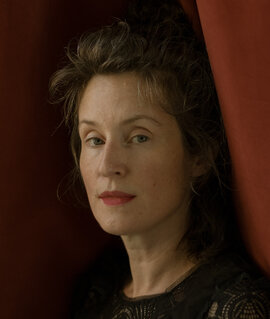Julia Ulehla
Research Area
Education
BA, Stanford University
MMus, Eastman School of Music
PhD, University of British Columbia
Postdoctoral Fellow, Queen's University
About
Artist-scholar Julia Ulehla’s critical/creative practice-based research lies at the intersection of experimental and improvised music, Slavic folk song, research-creation, and ethnomusicology. Julia earned a PhD in ethnomusicology from UBC, where she was recipient of the Killam Doctoral Scholarship and a member of the Public Scholars Initiative. She also holds an MMus in Vocal Performance and Literature from the Eastman School of Music, and a BA in Music with a concentration in vocal performance (Honors) from Stanford University. Through research-creation and live and recorded performance, her PhD dissertation explored “living song” from Slovácko. She is currently wrapping up a SSHRC-funded Postdoctoral Fellowship in the Cultural Studies department at Queen’s University, in which she explores an “extra-rational vocal performance laboratory” enacted inside a network of care and exchange involving vocalists of varying identities, worldviews, and practices. She has published in the edited collection Research and Reconciliation: Unsettling Ways of Knowing through Indigenous Relationships (2019), and in the journals Performance Matters (2023) and Ethnomusicology Translations (2019). Julia regularly speaks at academic conferences (Society for Ethnomusicology, British Forum for Ethnomusicology, Analytical Approaches to World Music) and as an artist keynote speaker in arts colloquia (International Institute for Critical Studies in Improvisation, Folk Holidays, Crossroads of Czech Music, WOMEX).
Described as a “captivating Moravian magician” (Downbeat) with “a voice that can seduce like Lorelei on the rocks one moment, then turn strident and martial, passionate and sinuous” (fRoots), Julia’s work as a performer crosses disciplinary boundaries and genres, drawing upon music, theatre, improvisation, installation, ritual, movement, text, and visual art. In addition to a background in laboratory theatre and Western Art Music, she is a song carrier of her familial song heritage from Slovácko. She performs in music festivals (Colours of Ostrava, Monheim Triennale, Suoni per il popolo, FIMAV, Vancouver International Jazz Festival, Vancouver Folk Festival) and concert houses (Bimhuis, Le Senghor, Old Town School of Folk Music) across North America and Europe with her project Dálava, and is a regular collaborator in various local and international interarts projects (Music on Main, The Only Animal, BAM Fisher, NY Live Arts, Movement Research, Baryshnikov Arts Center). In performance and on recording (The Book of Transfiguration, 2017, self-titled 2014), Dálava has been called “a masterpiece” (fRoots), “incandescent” (Musicworks), and “astonishing” (Georgia Straight). In the year of its release, The Book of Transfigurations was named “one of the best live concerts in Vancouver” (Vancouver Sun) and the “most influential album to come out of Vancouver” (Georgia Straight). Her work has been supported by awards from the Canada Council and BC Arts Council.
A passionate advocate for supporting students to situate their own creative practice as a site of research, critical reflection, and societal engagement, as well as for the greater inclusion of musical forms and practices in university music departments, Julia teaches a class on Performance and Research-Creation.
